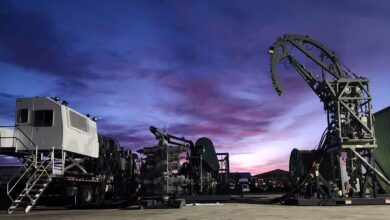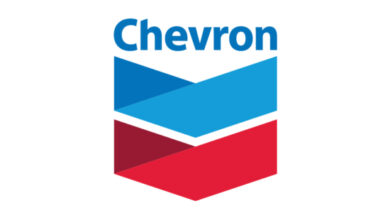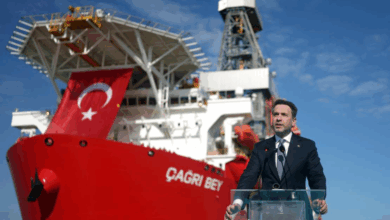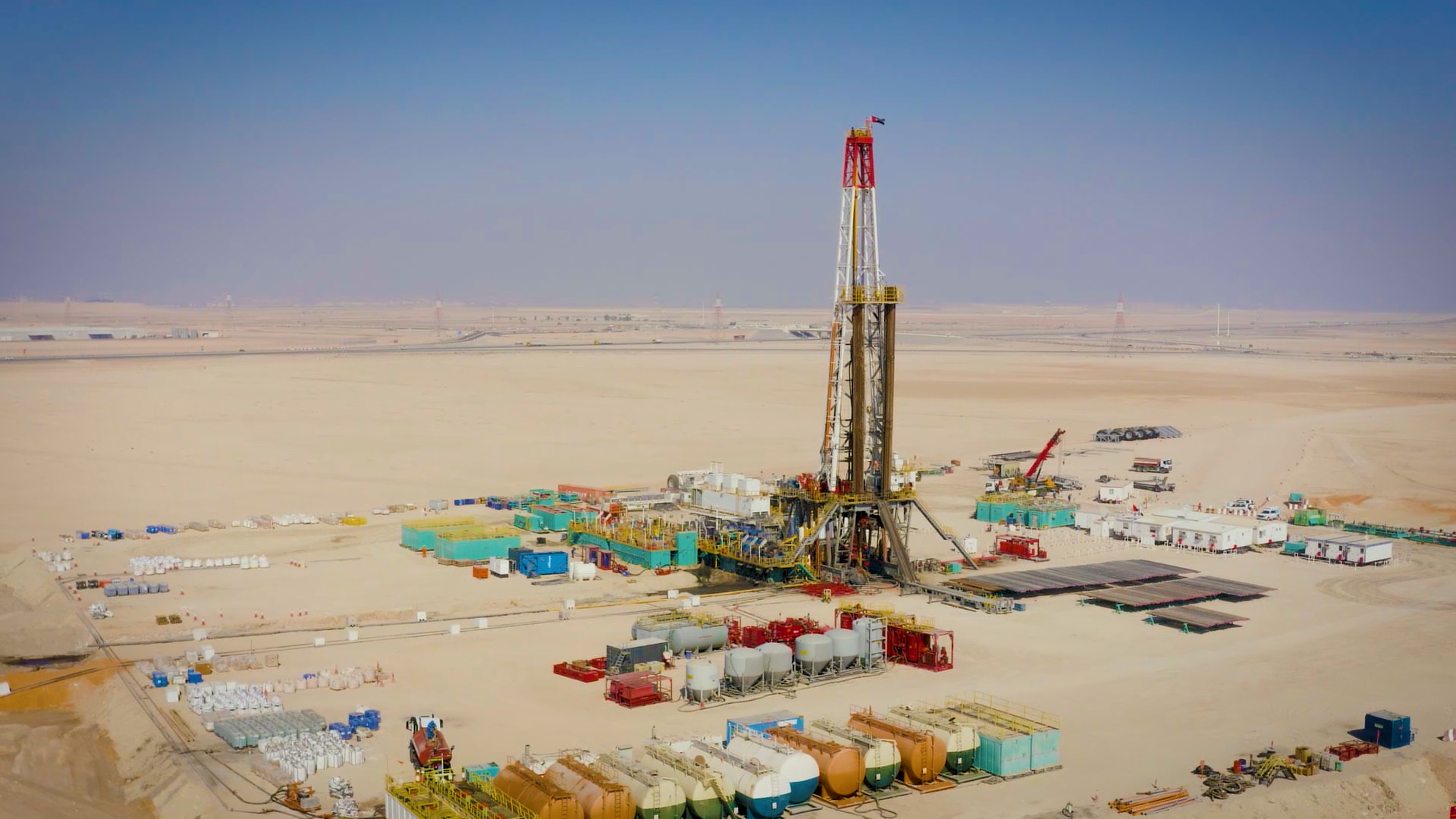Middle East: Signs of resilience, optimism despite a slowdown
Drillers feeling strained amid contract cancellations/suspensions, but hopes remain for a quick recovery as governments ease travel restrictions
By Stephen Whitfield, Associate Editor
While it’s generally recognized that the Middle East drilling market has been more resilient than most other drilling markets around the world to this year’s market mishaps, this region has not been immune. In fact, rig count here has seen a noticeable drop from its high-water mark for the year in March, falling from 432 rigs to 315 rigs in July.
Drilling contractors, who had already been working on “very thin” margins since the 2014-2015 downturn, are seeing even greater strains on their profit levels, according to Ahmed Abdelhady, Director of Marketing – Middle East, North Africa and Mediterranean at Shelf Drilling. For several years, operators have been focused on reducing their spending. Combine that with an oversupply of rigs – primarily newbuilds – and it’s clear why rig dayrates continue to suffer.
Add a global pandemic and oil price crash on top of that, and drilling contractors are facing an extremely difficult situation. In many cases, operators are calling for discounts and suspending rig contracts or even canceling them altogether.
“We think that the driller/operator relationship needs a considerable reevaluation,” Mr Abdelhady said. “In order to generate any positive cash flow in the current environment, we need to work together with our customers to find ways to deliver wells in a more efficient and cost-effective manner. The low cost of operating efficient rigs will reflect upon the profits shared between all of us.”
Despite the challenging environment, however, there is increasing optimism that the market will bounce back quickly once local governments relax restrictions put in place to slow the spread of COVID. Some contractors, in fact, are starting their preparations to bring some suspended rigs back online.
Rigs and Contracts
Shelf Drilling currently has a fleet of 12 jackups operating in the Arabian Gulf. Seven of these rigs are working for Saudi Aramco and two rigs for ADNOC offshore Abu Dhabi. While the company says it would welcome a gradual reopening of economies that it anticipates would boost demand – both for oil and for drilling units – it expects the market to remain depressed in the short to medium term. The same is expected for operators’ capital spending.
In particular, offshore jackup demand has “substantially deteriorated” over the course of the year, Mr Abdelhady said, noting that Shelf Drilling has had four early contract terminations and three temporary suspensions since the onset of the pandemic. Among the terminations, Dubai Petroleum moved up the contract end dates for the Shelf Drilling Mentor jackup from January 2022 to October 2020 and for the Shelf Drilling Tenacious jackup from January 2022 to September 2020. In June, Saudi Aramco also suspended operations for the High Island IV jackup for a period of up to 12 months, during which the rig will receive zero dayrate.
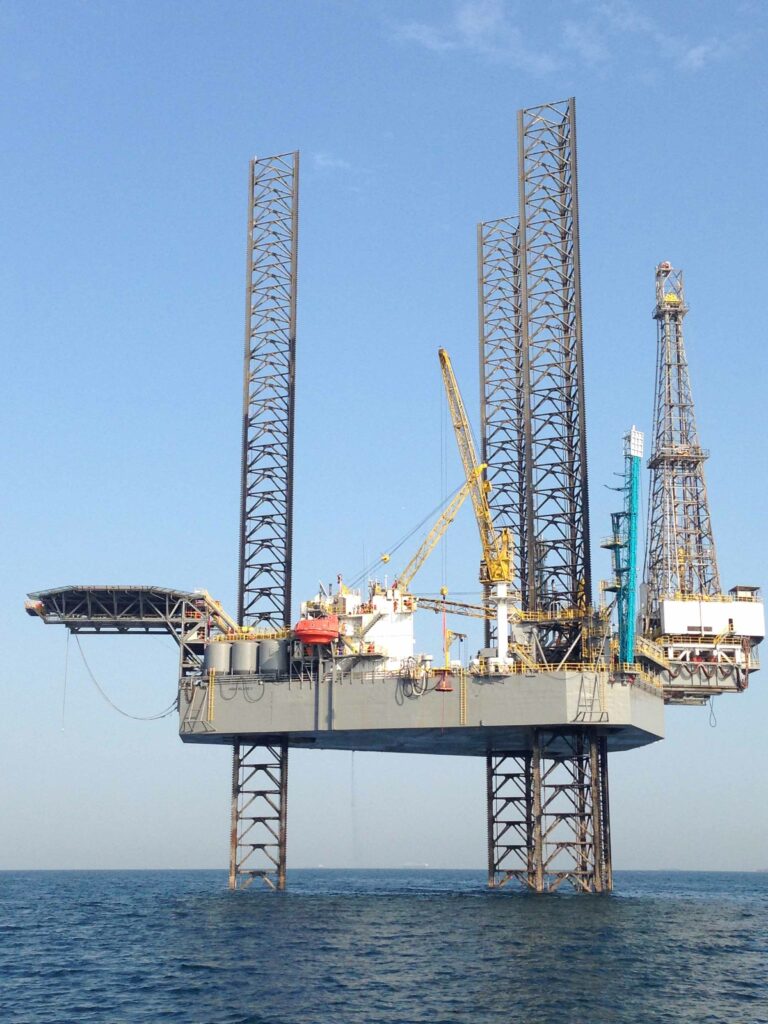
There is some good news starting to come out, however. On 13 August, Shelf Drilling announced that an early termination contract for its Trident 16 jackup had been rescinded; that rig is now under a call-out contract with Petrobel, for operations offshore Egypt, that is set to end in February 2021.
Fortunately for Shelf Drilling, the company went into the pandemic in a relatively favorable position and has been able to maintain relative stability in an extremely unstable market.
“We had close to a $2 million backlog and a fully utilized fleet at the beginning of this crisis,” Mr Abdelhady said. Once the pandemic hit, the company “responded quickly to the challenges imposed by COVID-19 and focused our attention on keeping our rigs free from the virus, ensuring business continuity on our operating rigs, reducing costs and improving liquidity.”
In the Middle East’s land drilling market, Helmerich & Payne (H&P) has so far seen no impact on its rig utilization, as all of its rigs are currently operational, according to Attila Vasvary, International Business Development Manager – Eastern Hemisphere. In fact, the Middle East is the one area where activity levels have held steady, he said. Most of the company’s operations in Argentina – the Tulsa, Okla.-based company’s other international base – have been halted in part due to the COVID-19 pandemic. It has also seen more than 130 rig releases in North America since March.
In the Middle East, the contractor has three rigs working in Bahrain and two rigs working in Abu Dhabi as of early August. “To date we have, fortunately, not had to scale back activity here,” Mr Vasvary said. “With commodity prices stabilizing the last few weeks a bit around $40, we expect drilling activity to stay at the same level it’s been at recently. In terms of activity rebounding, that is the million-dollar question.”
So far, COVID has not had a big impact on H&P’s supply chain, he added. The company has only experienced slight delays in equipment shipments, which have been offset by existing spare parts. Where the company has seen a bigger impact on operations has been related to operating cost increases due to international travel restrictions. From March through July, the UAE had grounded all inbound and outbound passenger flights, allowing only cargo to travel in and out of the country. That restriction has since been lifted, but people entering the country must still have a negative COVID-19 PCR test performed by a recognized laboratory. Bahrain requires a 10-day quarantine for incoming travelers, and they must be tested upon arrival at their own expense.
Because the majority of H&P’s rig crews in the UAE and Bahrain are made up of expats and non-residents, the travel restrictions have placed a significant burden on crew changes.
“The majority of our crews have had to stay over in-country beyond their scheduled times,” Mr Vasvary said. “In some cases, we’ve been able to bring over some extra crews to relieve the people we have on the rig. It’s gotten easier lately, but there are still travel restrictions that continue to be a challenge for us.”
COVID Restrictions
Amid the challenges associated with moving personnel and keeping rigs operational, government action has helped H&P to manage through the pandemic, the company said. In Bahrain, for example, an $11.4 billion stimulus package approved in April allowed the government to pay 100% of private sector employee salaries for three months and 50% for another three months, provided that the employee is a Bahraini national. This helped to defray some of the increased travel costs for H&P.
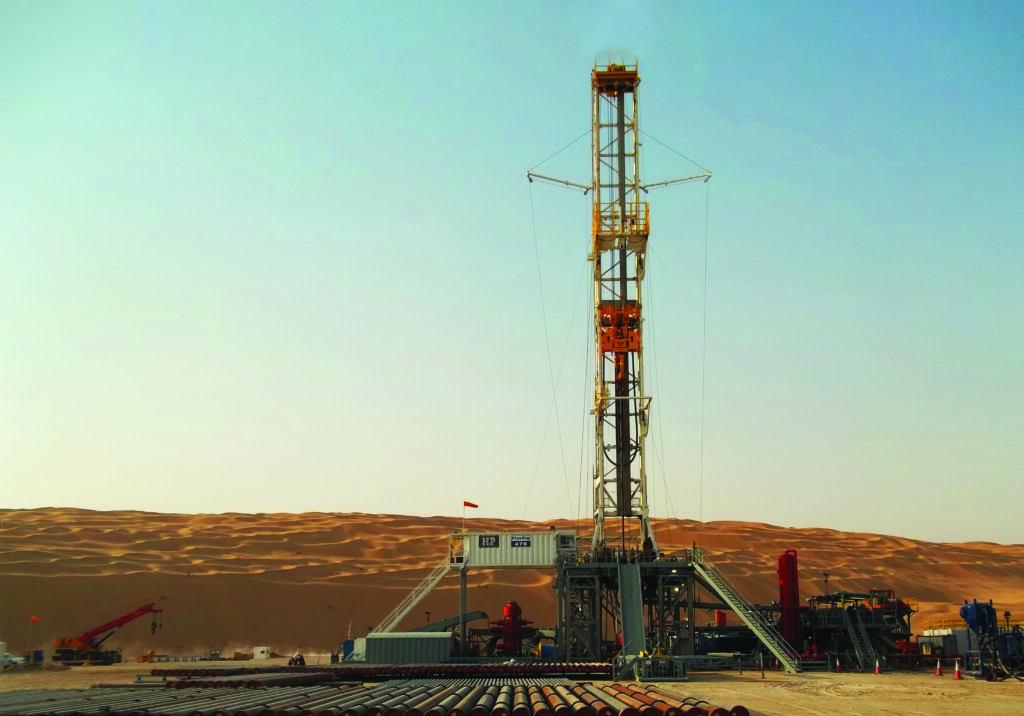
Further, Bahrain has kept its airports open during the pandemic, allowing locals and foreigners with a residency visa to travel in and out of the country as long as they complete a 10-day quarantine upon entry. On 20 August, the Bahraini government removed the quarantine requirement.
“There are still challenges that have come from the travel restrictions, but we’ve seen several advantages to working in Bahrain,” Mr Vasvary noted.
Like many other drillers around the world, Shelf Drilling has had to enact a strict safety protocol on its rigs working in the Middle East, including mandatory quarantine and testing of personnel before leaving for and after coming back from an offshore rig. These measures placed additional constraints on crew changes, on top of those related to international travel.
This meant that the company has had to keep its crews onsite for much longer hitches, especially in locations where access to the local workforce is limited.
“Of course, we believe that building local content and having critical mass in countries where we work has given us some flexibility in moving personnel between rigs,” Mr Abdelhady said. “However, due to restrictions on international movement, crew members in certain areas have had to stay onboard rigs for several months in order to maintain business continuity.”
For contractors who were still just starting to build a presence in the Middle East when the travel restrictions began, the impact was noticeable, too. Northern Offshore previously had a fleet of jackups working in the North Sea, along with floaters working in Southeast Asia, India and West Africa, but it had begun focusing on the Middle East market at the end of 2016. The company had closed its regional office in Singapore and opened an office in Abu Dhabi to focus on marketing its four newbuild high-spec jackups in the Middle East.
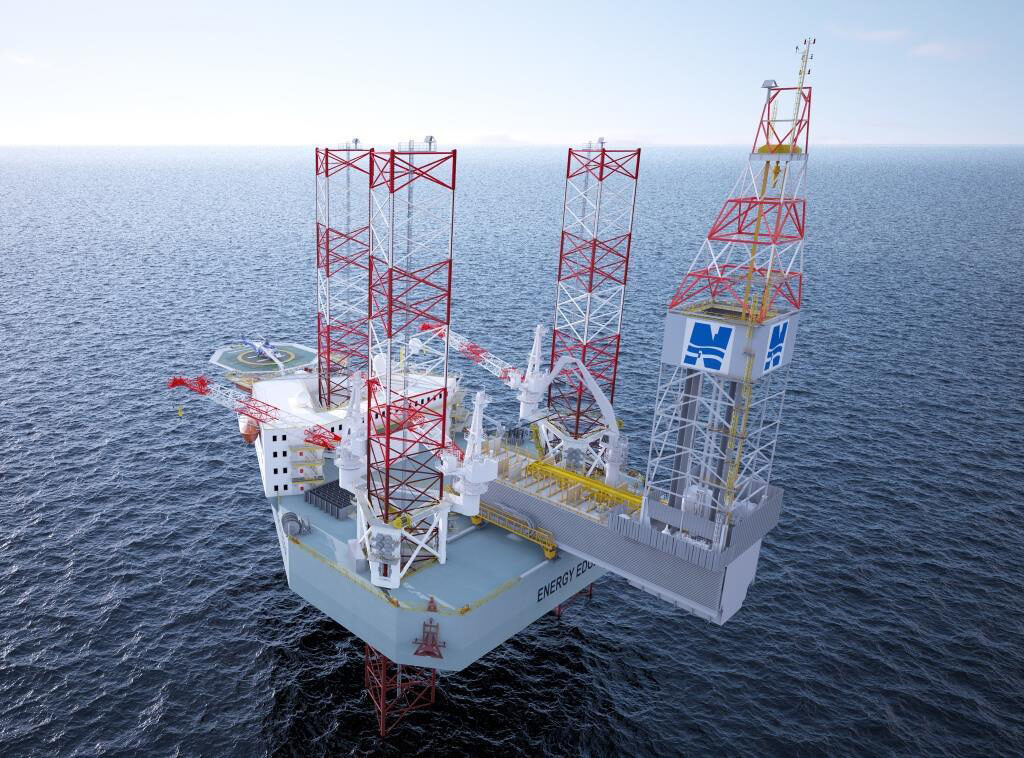
The Energy Emerger and Energy Embracer are GustoMSC CJ46 design jackups capable of operating in up to 375 ft of water, while the Energy Enticer and Energy Edge are GustoMSC CJ50 design jackups suitable for up to 400-ft water depths. These heavy-duty jackups are capable of drilling to a maximum depth of 30,000 ft.
By 2019, the company had been successful in securing contracts for all four of these rigs. In May of last year, a contract was announced with Qatar Petroleum for two rigs to work in the North Field. Each rig was awarded four years of work. In September, the company announced a four-year contract with an unnamed operator for the Energy Emerger to drill offshore Abu Dhabi. Then, in January, the company announced an additional contract with Qatar Petroleum for a two-year term. The scheduled commencement dates for all four contracts were between March and September 2020.
When the pandemic hit, the commencement dates of all these contracts were postponed, however. Northern Offshore has been working with its customers over the past few months identify new start dates. Clay Coan, Senior Vice President of Marketing and Contracts, said he was optimistic that the rigs would begin their contracts in the near future. DC


